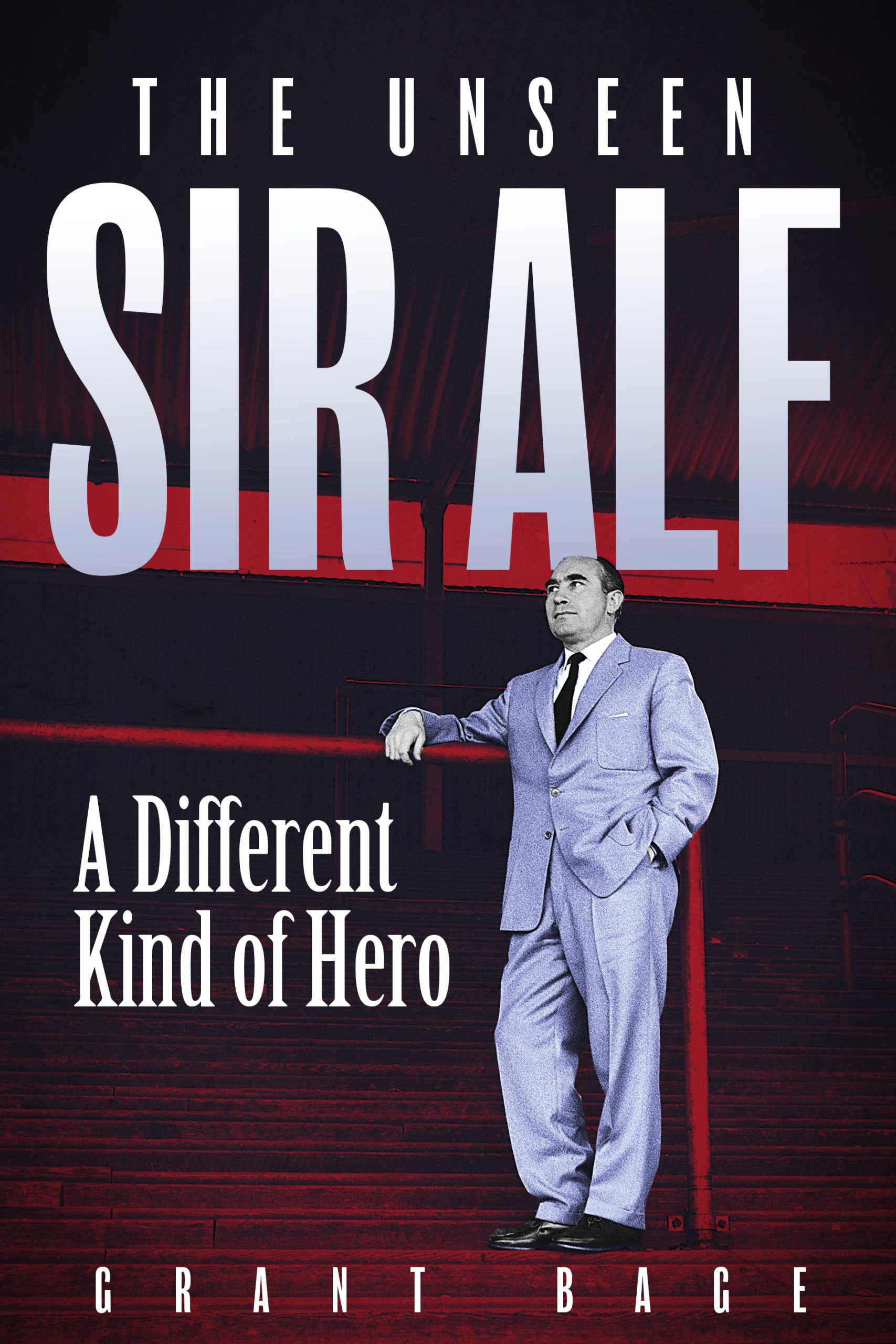THE UNSEEN SIR ALF
A Different Kind of Hero
Most people cannot recall England’s 1966 World Cup win, or its manager Alf Ramsey. By retelling Alf’s story using unique fresh evidence, this book changes history.
Grant Bage blends rigorous historical scholarship with lifelong passion for the game. A football writer, academic, and Honorary Fellow of The Historical Association, Bage spent six intensive years uncovering the Alf Ramsey you thought you knew – but probably didn’t.

Ever since 1966, when England’s manager led the country to win its first and only World Cup, people have asked:
Who really was Alf Ramsey, and how did he do it?
THe unseen sir alf answers these questions
Each of the book’s 15 chapters introduces fresh, previously unused historical evidence and interpretations to tell a totally new story of Sir Alf Ramsey
Places Ramsey’s career in the context of 20th century football and national history – exploring pivotal issues, defining moments, and notable figures that shaped the era
Draws parallels with 21st century sporting figures who echo the challenges Alf faced and the values he held — including Gareth Southgate, Gary Lineker, Hope Powell, and Azeem Rafiq.
Essential reading for fans of England, Ipswich Town and Tottenham Hotspur, where Ramsey won trophies and fame, and Southampton F.C. where his professional career started
Re-thinks Ramsey’s life history and uses that to peek into the soul of football as a sport, and Englishness as an idea
THe unseen sir alf
makes the case that Alf Ramsey should be seen as a modern diverse hero, not the conventional figure many have mistakenly assumed him to be.
This new narrative reconstructs the world Alf Ramsey was born into, beginning with his childhood racist nickname, then examines ongoing English prejudices against Gypsy, Romany and Traveller (GRT) people. It evidences how Ramsey family history on both sides had rich links to people with GRT heritage and histories.
Whilst tracking the positive impact of Alf’s parents, the research also uncovers aspects of his family background that may have contributed to his lifelong habit of secrecy.
It describes how Ramsey’s early playing career was shaped by struggle and exclusion. Between the ages of 14 and 16, he could not play any competitive football, and from 16 to 20 he relied on Sunday leagues—competitions persecuted by the Football Association until as late as 1960—to keep his football flame burning. His sporting and leadership development accelerated during six years of full-time service in the British Army, from 20 to 26. The discipline of military life and team work left a lasting mark on his character, values and management style.
The book analyses Ramsey’s slightly unusual personality and behaviour using modern theories and frameworks to explore his possible neurodiversity. It questions whether his obsession with football, ability to hyperfocus and extraordinarily detailed football memory combine to give him unique insights in an age when few matches were filmed.
It also shines light on overlooked episodes of his career, such as his three years coaching outstanding amateur footballers at an Old Etonian-funded East End charity—experience that would prove vital to his later managerial triumphs. The significance of 1950s Freemasonry in Ramsey’s life is also considered.
Ramsey’s achievements as manager at Ipswich Town are re-evaluated, showing how he pioneered approaches that no other 20th-century manager attempted. But the book makes clear that his appointment as England manager was far from inevitable: influential figures at the FA opposed him from the start, and he had to defy the odds simply to be given the chance. Once in the role, he introduced fresh methods of selecting, directing, and coaching players, revolutionising English football and within four years of his appointment, winning the World Cup.
The story is further enriched by a unique FA collection of nearly 200 congratulatory letters sent to Ramsey during the 1966 World Cup, many of them from ordinary fans and never before studied by scholars. They reveal the depth of his connection with the English and global public.
The account concludes with the painful story of his downfall. Bullied out of his England job by the toxic, amateur governors of the 1970s Football Association, Ramsey was treated with little of the respect his achievements deserved. The experience left scars from which he and his reputation never fully recovered.

